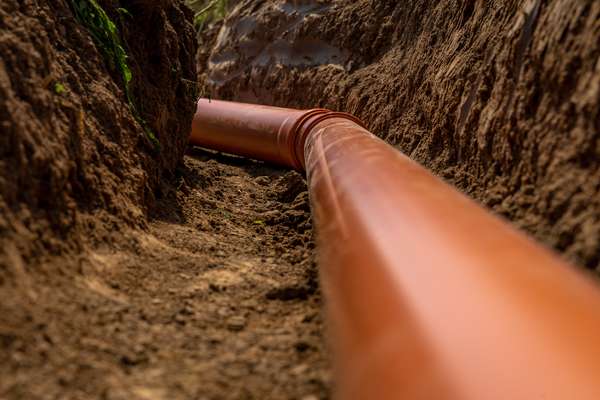In the Land Down Under, where the wildlife is as diverse as the landscape, residents are being confronted with a different kind of beast—one that lurks beneath the surface of our very homes.
An oozing, unidentifiable creature pulled from an Australian drain looks like something straight out of a horror movie. But this isn’t fiction, and experts say it could be a sign of a much bigger problem lurking in homes across the country.
You May Like
Authorities across Australia are sounding the alarm over the monstrous mass known as ‘fatberg’ clogging drains with alarming regularity. They are urging the public to be vigilant about what they flush down the toilet and pour down the sink.
The issue has become so severe that the Water Corporation of Western Australia has taken to social media to share stomach-churning images of these ‘pipe monsters,’ which are formed when oils and fats poured down drains solidify and bind with non-flushable items like wet wipes, paper towels, and sanitary products.
The images, taken from various locations across the state, showcase the extent of the problem. A spokesperson for the government department highlighted that the consequences of these blockages are not just unpleasant—they’re expensive and time-consuming to address.
‘Non-flushable products like wet wipes, paper towels, cotton buds, and sanitary items can cause major blockages when flushed down the toilet instead of being put in a bin,’ the spokesperson explained.
‘Responding, repairing and cleaning up blockages caused by things like rags and solidified oils is expensive, time-consuming and something that is entirely preventable.’
The advice from the experts is clear: dispose of fats, oil, and grease in the bin, and remember to only flush the 3Ps—toilet paper, pee, and poo.
This is such a big deal because unlike toilet paper, which is designed to disintegrate quickly in water, other items do not break down easily. Despite clear warnings on packaging, they are still being flushed away, leading to blockages and overflows in household pipes across the country.
The problem extends beyond the confines of our homes. When these non-biodegradable wastes make their way into the sewage system, they can wreak havoc on wastewater treatment plants. The blockages disrupt services and inflate maintenance costs, which can ultimately be passed on to consumers.
Moreover, the environmental impact is significant. Many of these flushed items find their way into our waterways, polluting them and posing a threat to marine life. Plastics and synthetic fibres from these materials contribute to long-term environmental damage, as they do not break down naturally.
Australians take pride in the love for the weird and wonderful aspects of the environment. But if you’re not careful, your habits could undermine the very ecosystems you cherish. It’s time to take action and ensure that your convenience doesn’t come at the cost of the planet’s health.
Have you had any plumbing nightmares caused by these ‘fatbergs’? Share your stories in the comments below.
Also read: Beware: This hidden property threat could mean big expenses!


People that don’t seem to care what is tossed down the toilet or sink have most likely done it all the time. Where is their kitchen bin? Probably don’t have one. Also don’t recycle things most of the time.
How did they get that metal item down the sink or toilet??